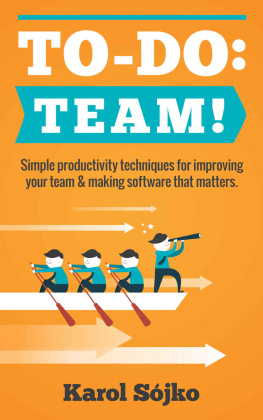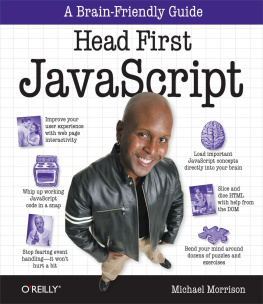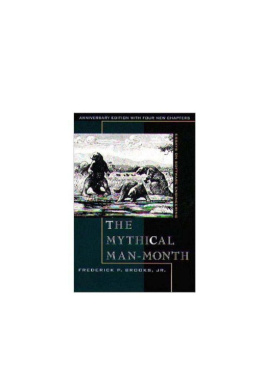Tom DeMarco - Peopleware: Productive Projects and Teams (3rd Edition)
Here you can read online Tom DeMarco - Peopleware: Productive Projects and Teams (3rd Edition) full text of the book (entire story) in english for free. Download pdf and epub, get meaning, cover and reviews about this ebook. year: 2013, publisher: Addison-Wesley Professional, genre: Politics. Description of the work, (preface) as well as reviews are available. Best literature library LitArk.com created for fans of good reading and offers a wide selection of genres:
Romance novel
Science fiction
Adventure
Detective
Science
History
Home and family
Prose
Art
Politics
Computer
Non-fiction
Religion
Business
Children
Humor
Choose a favorite category and find really read worthwhile books. Enjoy immersion in the world of imagination, feel the emotions of the characters or learn something new for yourself, make an fascinating discovery.

- Book:Peopleware: Productive Projects and Teams (3rd Edition)
- Author:
- Publisher:Addison-Wesley Professional
- Genre:
- Year:2013
- Rating:3 / 5
- Favourites:Add to favourites
- Your mark:
Peopleware: Productive Projects and Teams (3rd Edition): summary, description and annotation
We offer to read an annotation, description, summary or preface (depends on what the author of the book "Peopleware: Productive Projects and Teams (3rd Edition)" wrote himself). If you haven't found the necessary information about the book — write in the comments, we will try to find it.
Few books in computing have had as profound an influence on software management as Peopleware . The unique insight of this longtime best seller is that the major issues of software development are human, not technical. Theyre not easy issues; but solve them, and youll maximize your chances of success.
Peopleware has long been one of my two favorite books on software engineering. Its underlying strength is its base of immense real experience, much of it quantified. Many, many varied projects have been reflected on and distilled; but what we are given is not just lifeless distillate, but vivid examples from which we share the authors inductions. Their premise is right: most software project problems are sociological, not technological. The insights on team jelling and work environment have changed my thinking and teaching. The third edition adds strength to strength.
Frederick P. Brooks, Jr., Kenan Professor of Computer Science, University of North Carolina at Chapel Hill, Author of The Mythical Man-Month and The Design of Design
Peopleware is the one book that everyone who runs a software team needs to read and reread once a year. In the quarter century since the first edition appeared, it has become more important, not less, to think about the social and human issues in software development. This is the only way were going to make more humane, productive workplaces. Buy it, read it, and keep a stock on hand in the office supply closet.
Joel Spolsky, Co-founder, Stack Overflow
When a book about a field as volatile as software design and use extends to a third edition, you can be sure that the authors write of deep principle, of the fundamental causes for what we readers experience, and not of the surface that everyone recognizes. And to bring people, actual human beings, into the mix! How excellent. How rare. The authors have made this third edition, with its additions, entirely terrific.
Lee Devin and Rob Austin, Co-authors of The Soul of Design and Artful Making
For this third edition, the authors have added six new chapters and updated the text throughout, bringing it in line with todays development environments and challenges. For example, the book now discusses pathologies of leadership that hadnt previously been judged to be pathological; an evolving culture of meetings; hybrid teams made up of people from seemingly incompatible generations; and a growing awareness that some of our most common tools are more like anchors than propellers. Anyone who needs to manage a software project or software organization will find invaluable advice throughout the book.
Tom DeMarco: author's other books
Who wrote Peopleware: Productive Projects and Teams (3rd Edition)? Find out the surname, the name of the author of the book and a list of all author's works by series.











